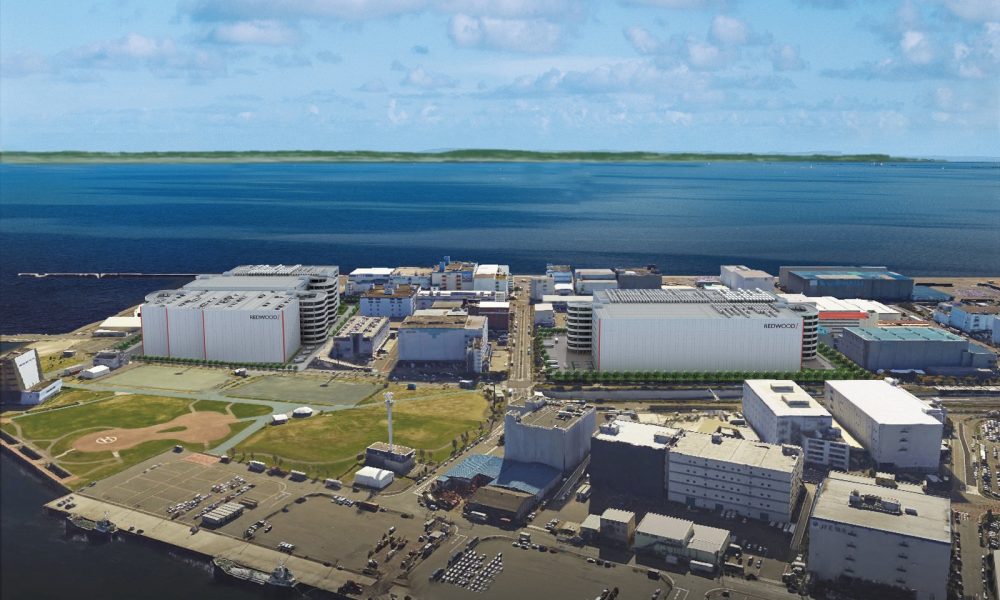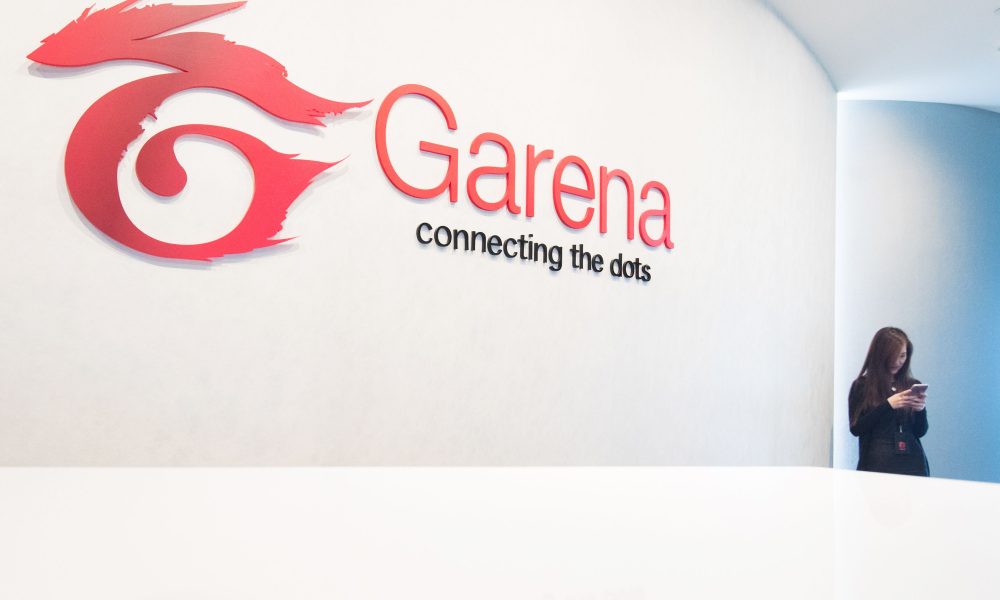Category: IPO
Warburg-backed e-Shang Redwood closes US$300 million investment in run up to IPO
A consortium of mainland China investors has invested US$300 million in Warburg Pincus-backed Asian logistics real estate developer e-Shang Redwood (ESR), as the company prepares for a potential initial public offering (IPO) this year.
The named investors for the pre-IPO round consist of top-tier mainland finance firms which include Hong Kong-based GF International Investment Management Ltd., Huarong International, Huarong Rongde, SPDB International, China Everbright Ltd., Everbright Securities and CMBC International.
As per details of the IPO, the company has since the beginning of 2016, been reportedly seeking an initial public offering in Hong Kong to raise around US$1 billion.
“Modern warehousing will continue to benefit from the rapid development of e-Commerce and the transformation of the retail sector in Asia and we believe ESR is well-positioned to further enhance its strong leadership position,” said Elyn Xu, Head of Structured Finance for GF Holdings, a Hong Kong affiliate of mainland-based brokerage GF Securities.
ESR was formed in January 2016, as the result of an all-stock merger between the Shanghai-based developer and operator of warehouses, e-Shang Cayman with Singapore-based logistic fund manager, The Redwood Group. The partnership was aimed to create one of the largest logistics real estate platforms in Asia.
Leveraging on the rapid growth of e-commerce in Asia, ESR has since then quickly built a 6.5 million square meters of projects in operation or under development in China, Japan, and South Korea with another over 6 million square meters in pipeline.
Prior to the latest round of investment, the company’s existing list of backers also comprise supports of major institutional investors which include Warburg Pincus, CPPIB, APG, PGGM and Goldman Sachs.
“2016 has been a very strong year for us with the completion of the Redwood merger, the substantial increase in development starts in our core markets of China, Korea, and Japan on the back of robust market demand from our best-in-class tenant relationships and the establishment of new financing institutional relationships in each of our market,” said Jeffery Shen, the co-CEO of ESR.
“The company is well-positioned to further accelerate its growth and solidify its market leading position across Asia over the next few years,” he further adds.
The company last secured a US$ 300 million commitment in July 2016 from Ping An Real Estate, the real estate investment and asset management platform of Ping An Insurance Company of China, Ltd. The purpose of the funding was for the development of logistics projects in Japan.
By Vivian Foo, Unicorn Media
China’s Sogou targets IPO at US$5 billion valuation to rival Baidu
China’s third-biggest search engine Sogou is expected to hold a U.S. initial public offering this year, according to a report by Bloomberg, based on its interview with Sogou CEO Wang Xiaochuan.
The IPO of Sogou, a subsidiary of Chinese internet giant Sohu.com (SOHU) is likely to release about 10 percent of its total share to the financial market in the United States at a market valuation of US$5 billion.
It is also reportedly said that Sogou, whose name translates as search dog, is planning to use part of the IPO proceeds to improve search results by backing companies developing artificial intelligence. Despite so, the company is yet to formally hire investment bankers to run the listing.
Though Sohu remains the leading investor, Sogou is also backed by Tencent after the China Internet service portal giant paid US$448 million for a 36.5% stake in the Sohu unit. In 2013, Tencent Holdings (TCEHY) and Sogou merged their search engine technology and services to better compete against China search leader Baidu.
According to Bloomberg, Baidu held a 44.5% share of mobile search queries in the third quarter, followed by Alibaba-backed Shenma at 20.8% share and Sogou at 10.2%.
But while Baidu remains the biggest provider across all platforms in China, it is under siege after a scandal over a medical advertising incident, giving smaller rivals including Sogou and Qihoo 360 Technology the opportunity to win over mobile users.
“Over the past year, we’ve seen a trend where people are finding themselves not trusting Baidu as much and some are even seeking a replacement,” Wang Xiaochuan, the CEO of Sogou since 2010 explained.
“So over the next year or two, as more people feel more comfortable with Sogou they’ll realise it is able to replace Baidu,” he adds.
At present, Sogou is the only search engine formally allowed to crawl through the published messages on Tencent’s WeChat platform, which has more than 800 million users.
The Tencent-backed search engine is also signing deals with device makers to ensure more smartphones are shipped with its software already installed, adopting a successful strategy previously used by microblog Weibo.
Sogou is also launching new search services aimed at bringing foreign results to Chinese audiences. By using translation technology, its customers will be able to search the English-speaking web with Mandarin search terms that will automatically translate the content back into Chinese.
“This is a turnaround year for us,” Wang Xiaochuan said.
With its IPO in planning, shares in Sohu increased by 4.9% to US$35.54 in New York on Tuesday, retaking its 50-day line for the first time in more than two months.
By Vivian Foo, Unicorn Media
Hathway Cable Unit GTPL Hathway files papers for IPO to raise US$45 million
Cable TV and broadband internet services provider Hathway Cable & Datacom Ltd has intimated a potential initial public offering (IPO) listing on Monday where the company is looking to raise Rs 300 crore (approximately US$45 million).
The IPO filing of Draft Red Herring Prospectus was completed by its material subsidiary, GTPL Hathway Pvt. Ltd with the Securities and Exchange Board of India as well as with both the Stock Exchanges, i.e. BSE Limited and National Stock Exchange of India Limited.
The GTPL Hathway IPO was approved by the Hathaway’s board since August 2016.
As per details of the draft prospectus, the company notes that its IPO will seek to raise funds for GTPL through a fresh issue of equity shares while giving an option to existing GTPL shareholders to sell their holdings.
Offering cable TV and broadband services, GTPL Hathway is one of the largest cable television operators in India, found in several cities which includes Pune, Ahmedabad, and Kolkata.
Despite being one of the many subsidiaries and partnerships owned by the listed Hathway Cable and Datacom Limited, GTPL Hathway is arguably one of its most profitable associations as well as one of the largest contributors to Hathway’s consolidated numbers across major financial and operational parameters.
On the other hand, Hathway’s own cable TV operations span across almost 140 cities, alongside their broadband service which is provided in 21 cities across the country.
At present, Hathway has approximately 1.4 million broadband customers base which the company claims to constitutes approximately 52% of the total cable broadband market in India.
Besides Hathway, who owns a 50% stake of GTPL Hathway, other major shareholders include co-founders – Aniruddhasinhji Jadeja and Kanaksinh Rana – who owns a direct 14.6% alongside another indirect 29.1% through shareholding entity Gujarat Digi Com Private Limited and 5.2 per cent shares of GTPL respectively.
Shares of Hathaway Cable & Datacom Ltd was last trading in BSE at Rs, 34.55, which shows a Rs 0.25 increase as compared to the previous close of Rs34.30. The total number of shares traded during the day was 12593 in over 88 trades.
The stock hit an interday high of Rs 34.74 and intraday low of 34.25. The net turnover during the day was Rs.434100
The demerger will be subjected to requisite approvals from the shareholders, creditors, high courts, DoT, stock exchanges, Sebi and other applicable regulatory authorities.
The company has hired JM Financial Institutional Securities Ltd, BNP Paribas, Motilal Oswal Investment Advisors Pvt. Ltd and Yes Securities (India) Ltd to manage the initial share sale.
By Vivian Foo, Unicorn Media
Dasin Retail Trust seeks Singapore IPO to raise US$84.5 million
A business trust holding three shopping malls in China’s Guangdong province is looking to raise at least 586.4 million yuan (about US$84.5 million) through an initial public offering on the Singapore Exchange (SGX) mainboard.
On Wednesday night, Dasin Retail filed a preliminary prospectus with the Monetary Authority of Singapore, not disclosing its pricing or the number of units that would be in the retail and placement tranches.
The trust is however said to have an indicative market cap of S$439.7 million (about US$303.2 million).
“Units will be offered to institutional investors under a placement tranche as well as a public offering here, subject to over-allotment options,” said the trust manager Dasin Retail Trust Management in the preliminary prospectus.
It is also added that Dasin Retail Trust will benefit in terms of acquisition growth in the Pearl River Delta region where the sponsor – Zhongshan Dasin Real Estate has an active real estate presence.
Besides, Zhongshan Dasin Real Estate has also been granted the rights of first refusal (ROFR) to the trust manager for 14 completed and uncompleted properties.
Dasin Retail Trust operates as a real estate company with its key investment mandate focusing on investing, claiming ownership or developing land, uncompleted developments and income-producing real estate in Greater China, which are mainly commercial-based.
The trust’s initial portfolio comprises of three retail malls – Xiaolan Metro Mall, Ocean Metro Mall, and the Dasin E-colour shopping mall – all of which are located in Zhongshan City. The three malls combined have a total gross floor area of about 314,884.9 square meters and were valued at 4.6 billion yuan at June 30, 2016.
Additionally, two cornerstone investors – China Orient Asset Management (International) Holding and Haitong International Investment Fund SPC has also invested 120.8 million yuan (about S$25 million) in the trust.
The role of the sole financial adviser, global coordinator and issue manager for the proposed listing was appointed to DBS Bank, which will also act as the joint bookrunner and underwriter alongside Bank of China and Haitong International Securities.
By Vivian Foo, Unicorn Media
Singapore unicorn Garena in talks for US$1 billion IPO listing in the US
Garena Interactive Holding Ltd., a Singapore-based internet and mobile platform company as well as Southeast Asia’s largest unicorn, is reportedly tapping the US stock market for its initial public offering (IPO) that may raise around US$1 billion.
The unicorn, privately valued at US$3.75 billion, was in talks with several banks in Singapore this week discussing the IPO which could commence in 2018, according to sources close to Wall Street Journal.
It is also reported that these investment banks were invited to Singapore for IPO discussion by Garena’s backers – Chinese internet giant Tencent Holdings Ltd. and Singapore state investment firm Temasek Holdings Pte. Ltd.
Also, Garena’s preferences of listing destination lie in the big Apple, New York as due to the reason that the United States has the most listed numbers of internet companies which will provide the required resources and networks.
However, final details on a listing venue and the total amount of funds to be raised has not been decided.
Founded in 2008 by Forrest Li, Garena first started out as an online gaming company. Since then, the startup has grown to become Southeast Asia’s largest Web and mobile platform, with users spreading across countries such as Thailand, Vietnam, Hong Kong and Taiwan.
At present, the company offers interactive digital content, eSports, e-commerce and online payment products and services, operating a payment system called AirPay, and a social commerce app called Shopee.
Garena has also said in a statement that it has achieved compound annual growth of more than 95 percent over the past five years to over US$300 million in gross revenue in 2015.
In March 2016, Garena has announced a US$170 million Series D investment led by Malaysia’s state investment fund Khazanah Nasional Bhd. An additional undisclosed investment was also conducted in September that involved SeaTown Holdings International, a subsidiary of Temasek Holdings.
With its IPO plan on the move, earlier investors in Garena are expected to realise their investment in the firm. Other backers include the Ontario Teachers’ Pension Plan, one of Canada’s biggest pension funds, and private-equity firm General Atlantic LLC.
By Vivian Foo, Unicorn Media





